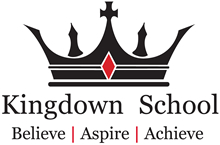NOTTINGHAM CAREERS ADVISERS DAY: I attended the well run day recently and here is a summary of the more interesting information I gleaned.
· Nottingham has a centralised admissions system but not for medicine.
· In addition to exam grades/predictions, they use LNAT, UKCAT and an online questionnaire for medicine, veterinary science and nutrition. They tend to interview only for vocational courses.
· The attitude to the personal statement and school reference varied by department, as does the weight given to contextual data. In broad terms they want 2 academic A2 subjects and prefer students to take 4 subjects at AS, there is no benefit in taking 4 A2 subjects. The definition of what is an academic A level varied by department.
· A major issue was students taking resits and the more competitive courses prefer students not to take more than 1 resit for a module BUT they do not know, unless the subject has been certificated. From next year state schools are meant to certificate but independents will not be required to do so.
· They look for ‘coded signals’ in references, as they know that in an open reference no one will say anything too strong. They may read the signals wrong and thus referees need to be very careful in their use of language. Request that schools put their exam results in context and stress any extenuating circumstances.
· Have a problem with students taking exams early and prefer subjects to be taken in one year and not built up.
· Unit grades released to departments for use in borderline decisions.
MEDICINE: The most interesting points were:
· In choosing courses, weigh up the competitiveness and get a spread, think about problem based learning or systems based, does it have dissection, what is the availability of local hospitals for teaching practice, what does it offer in terms of electives and other extra study.
· PBL normally entails 10-12 students with a supporting academic exploring a topic by independent study, lectures, tutorials and anatomy. Systems courses are more lecture/seminar based. However, most courses are a spectrum combining both approaches.
· Students need to expand on what they got from their work experience/voluntary work on their PS and NOT what they did. Experience gained over time is more valued e.g. one afternoon a week. Useful insights are how doctors deal with stress, how they interact with other health professions. Try to demonstrate your time management, teamwork, motivation, commitment and social responsibility.
· Do not give any additional credit to people who have attended MEDILINK.
· Minimum requirement is AAA prediction + 6 GCSEs grade A (not bothered if A*).
· From 2013 they are running a foundation course in medicine targeted at WP students
· UKCAT is used to support the application; they do not have a cut off score (unlike law) and only use the 4 cognitive elements.
· In selecting for interview they give a score to the 8 highest GCSEs (must have A at maths & science & B at English), score the on line questionnaire and use the UKCAT score. In terms of weighting, it is UKCAT, online questionnaire, GCSEs and then the personal statement, which is only important in marginal decisions. They then interview the number of candidates required to allow them to make a 2:1 ratio of offers.
· Stress the importance of practising for the UKCAT test by using the practice papers online
· Interviews take around 15 minutes and mainly look for empathy, motivation and communication skills.
LAW: The head of law delivering the seminar did not seem interested in being there and obviously did not believe in promoting his course. He said that he did not take GCSEs into account, did not follow the Russell Group guidelines on ‘suitable A levels’, ignored the personal statement/school reference and solely based his offers on whether the student is predicted AAA and if they get an LNAT score above a baseline (19 this year) that will give him the number of applicants to meet his ratio of offers, which was 4.5:1. He also ignored the essay component of the LNAT test, apart from seeing if the student’s command of English was ok. Roughly 50% of students who apply for Law will get an offer. He advised schools to ‘predict high’ and said Nottingham wanted to encourage WP but that he only used the postcode and whether the student said a parent had gone to university. People defined in this arbitrary manner as WP, are made an offer of AAB, rather than AAA. Unsurprisingly his seminar finished early and he had the shortest and least informative handout.
NURSING : The diploma route ends next year. Nottingham will offer three nursing courses:
· Bsc Nursing : covering children, learning disabilities or mental health. Largely follow the university year but slightly less holidays. Require BCC or equivalent; do not require Biology but it is useful and advised. GCSEs must include English, maths & a science. Accept Btec H&SC, child care and science.
· Master of Nursing : 4 years full time, requires ABB to include a science or relevant subject (e.g. psychology). Is unique in the UK and in the third year students choose elective opportunities.
· Graduate Entry Nursing : 2 years full time, require a 2:2 degree, only offered at the Derby centre.
· Do not know the government position on bursaries and fees but should know by the end of May.
· Many classes taught alongside medics and the other health courses e.g. pharmacy
· Can do placements abroad.
· All courses are 50:50 study and practice.
· Children’s nursing is far more competitive than the other areas and attracts 20 applicants per place. The tutor was keen to stress that the majority of the work is with the family and parent/s and not solely with the child.
· Average nursing starting salary is £21k, lots of chance to advance and to work abroad
